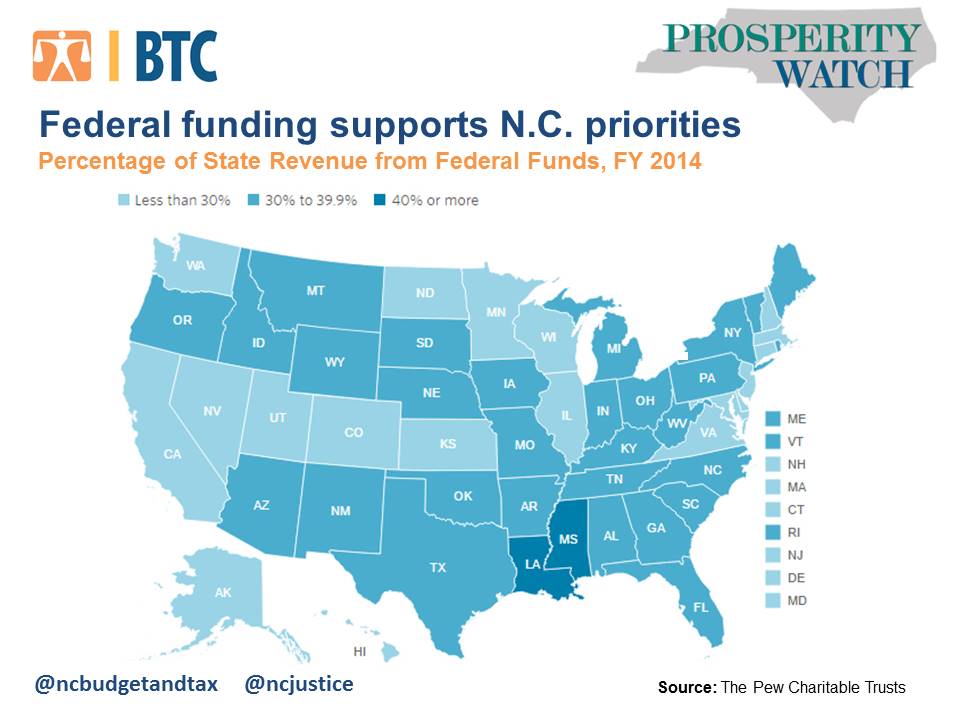Prosperity Watch (Issue 70, No. 2)
Feb. 13, 2017
As Congress and a new Administration begin to put together their budget for the next fiscal year and consider how they will invest in the building blocks of our country—the states—the importance of federal funding to North Carolina’s ability to meet our shared priorities should be front and center. The federal dollars that are invested in states like ours support education, health care, infrastructure and many other national priorities.
Federal spending relative to North Carolina’s Gross Domestic Product, or the size of the economy, was 20.6 percent slightly higher than the national average of 19.1 percent and below the average for Southern states. In 2014, the last year for which data is available, North Carolina received $98 billion in federal dollars through various mechanisms, including retirement benefits, grants, contracts, salaries and wages of federal employees, and other benefits and payments to individuals such as student financial aid and food assistance.
Federal dollars don’t just provide a direct benefit to workers and families in North Carolina. Federal dollars also directly support the ability of the state to meet its priorities in education, health care, transportation and income supports. Despite the decline in federal funding for many of these areas besides health care, federal funds help close the achievement gap in schools, build bridges and roads, and develop innovative service models that move more people into sustainable employment, as well as supporting many other goals. Estimates by the Pew Charitable Trust find that federal funds directly provide 32.7 cents for each North Carolina state revenue dollar.
At times, North Carolina has rejected federal funding. This was perhaps most notably the case with the failure to expand Medicaid since 2014, an option under the Affordable Care Act, which lost the state an estimated $6 billion and health care coverage for nearly half a million North Carolinians. North Carolina has also failed to draw down federal funding in other program areas that could leverage the state’s funding for skills training, for example. These missed opportunities, and the potential for dramatic changes to the way in which the federal government provides funding to states in the upcoming federal budget debate, have the potential to further challenge our state policymakers’ ability to meet community needs and balance the budget.
Federal funding is not just a critical piece of the state budget but also a tool to support North Carolina’s realization of a stronger and more inclusive economy.
 Justice Circle
Justice Circle 
